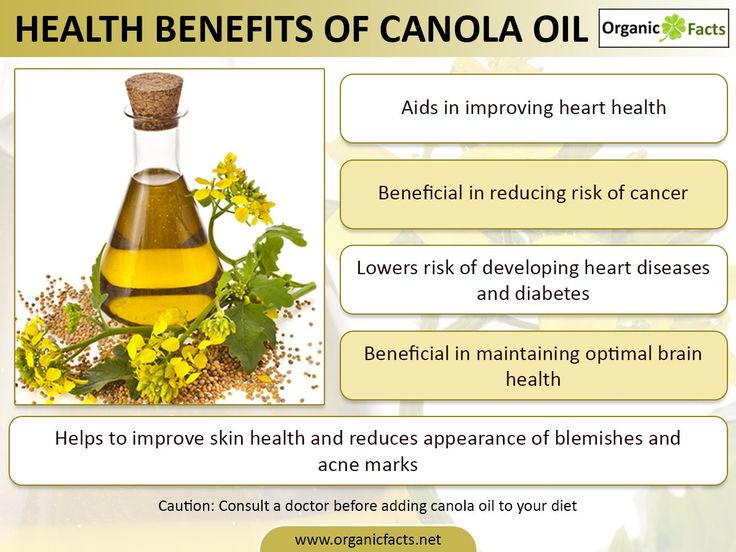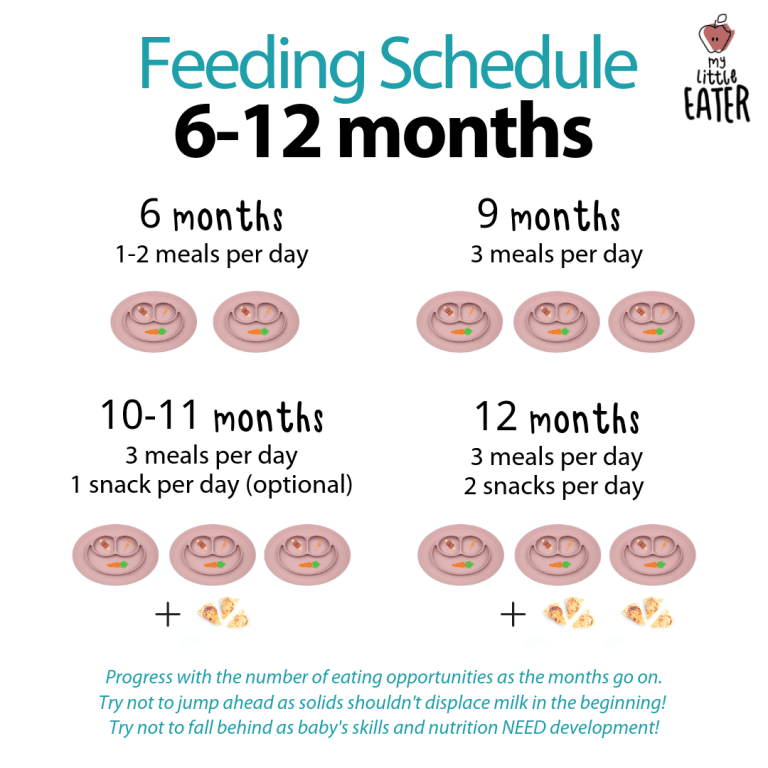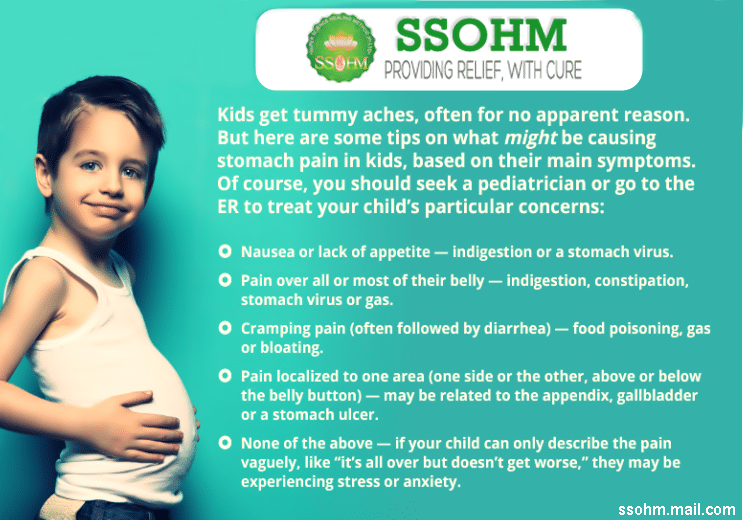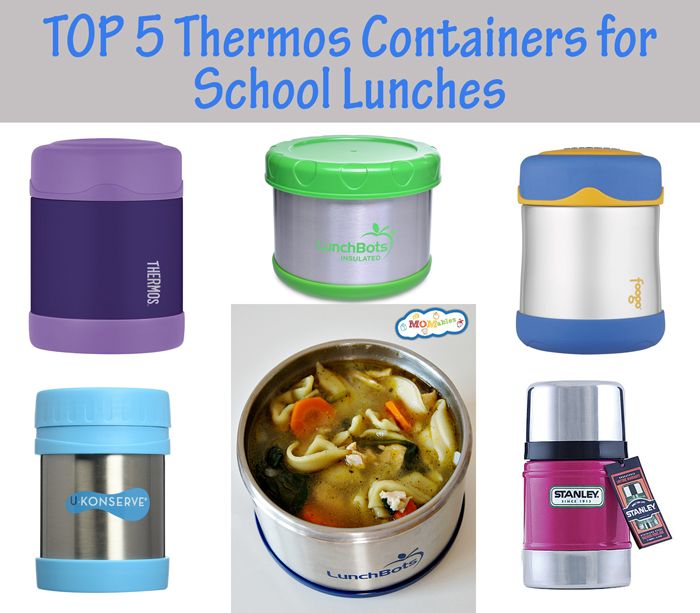Canola oil baby food
Is Canola Oil Safe for Use in Baby Formula?
If you have ever done any online research on canola oil, you’ve no doubt come across an abundance of information, misinformation, and opinions on its use. I have been getting a lot of questions about our recent change to canola oil as a fat source in our formulas, so I wanted to set the record straight – and set your mind at ease - when it comes to using this healthy oil.
First, what exactly is canola oil?
Canola oil is an excellent source of unsaturated fats and the essential fatty acids called linolenic fatty acid and linoleic fatty acid. Essential fatty acids are called “essential” because the body cannot make them from other fats and they must come from the foods we eat. These fatty acids are important for:
- Providing anti-inflammation protection for the body(like protecting us from heart disease),
- Supporting proper development of the brain and nervous system, and
- Helping the body make other important fatty acids like DHA and ARA,and prevent fatty acid deficiencies.
We’ve chosen to use organic canola oil in a variety of Baby’s Only® formulas. But we know that the ingredient often brings questions, and sometimes concerns, especially when it comes to what we feed our little ones.
So, let’s explore some of the misinformation about this healthy oil on the internet by taking a deeper dive into these claims and the facts behind them!
Claim 1: All canola oil comes from GMO sources
False. This claim doesn’t apply to ORGANIC canola oil, which we use in our formulas. Organic canola oil cannot be derived from a GMO (Genetically Modified Organism) or GE (Genetically Engineered) sources. Also, GMO and GE ingredients are not allowed by the U.S. National Organic Program. So, our organic canola oil MUST come from certified organic sources. This should come as no surprise to our Nature’s One families, who understand the importance of our company’s mission to source the cleanest, most nutritious ingredients possible.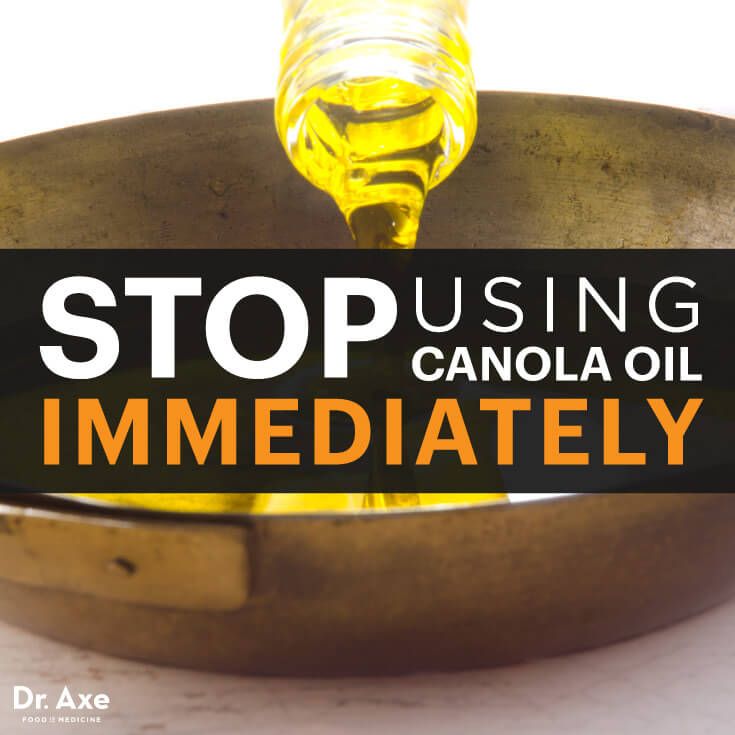
Claim 2: Canola oil comes from rapeseed plants and, therefore, contains toxins
False! Are you ready for some science?
Older varieties of rapeseed did include harmful compounds. However, in the late 1960’s, plant scientists used traditional plant breeding methods to remove the undesirable features of rapeseed, specifically the compound called erucic acid (which has been associated with heart lesions). These traditional plant breeding methods are sometimes called crossbreeding or hybridization. Crossbreeding is a natural process used for centuries where certain plants are selected for desired characteristics and then bred to produce a new crop that displays those characteristics in greater abundance. That’s how we get tasty new varieties of apples, for example!
This
is what occurred in Canada with rapeseed plants. Scientists cross-bred
various members of the rapeseed plant family to replace erucic acid
with oleic acid, a desirable monounsaturated fat.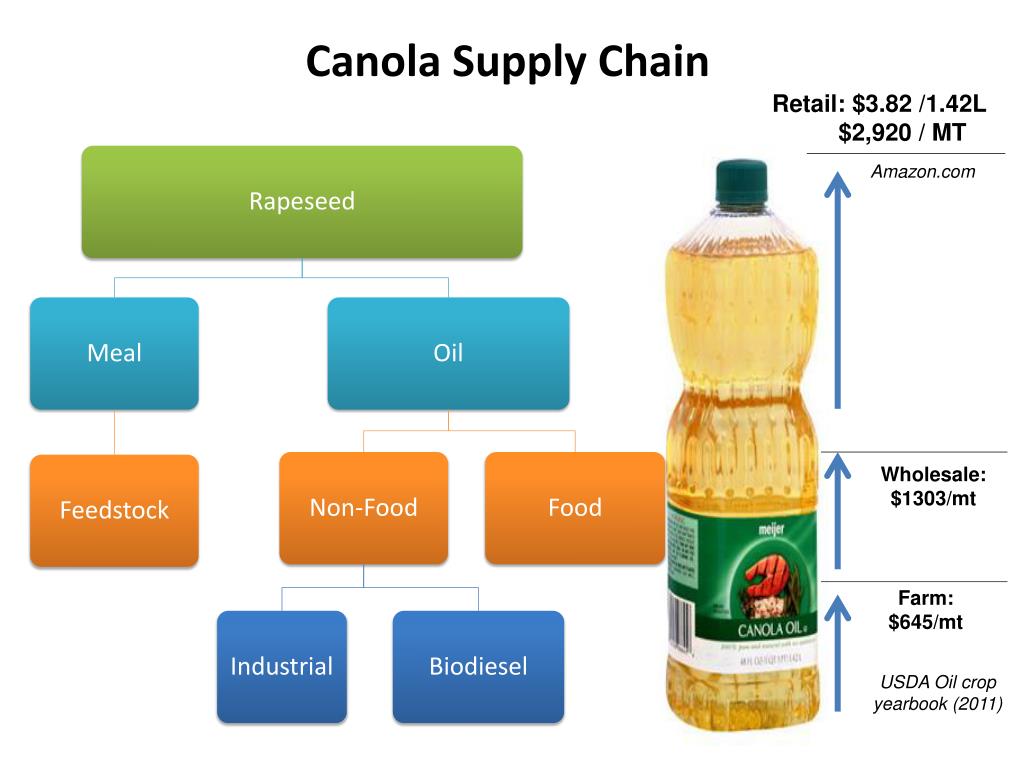 The result was a new
crop called canola,a name derived from “Canadian Oil Low Acid”. NOTE: Genetic engineering or genetic modification (GMO), where specific genes are inserted or manipulated in the rapeseed plant. was NOT used - just natural crossbreeding techniques - to develop this new crop called canola.
The result was a new
crop called canola,a name derived from “Canadian Oil Low Acid”. NOTE: Genetic engineering or genetic modification (GMO), where specific genes are inserted or manipulated in the rapeseed plant. was NOT used - just natural crossbreeding techniques - to develop this new crop called canola.
It’s important to note that canola oil and rapeseed oil are not the same substance. They are different plants with different fatty acid profiles.
Claim 3: Canola oil contains glycosides and isothiocyanates, which are harmful.
Not as simple as that. Because canola oil contains some glycosides and isothiocyanates, some anti-canola websites claim these are harmful. But, what are glycosides and isothiocyanates? Here comes more science!
- A glycoside is a compound made up of a sugar molecule attached to a non-sugar molecule. Glycosides from foods are used in the intestinal tract by good bacteria to promote a healthy gut.
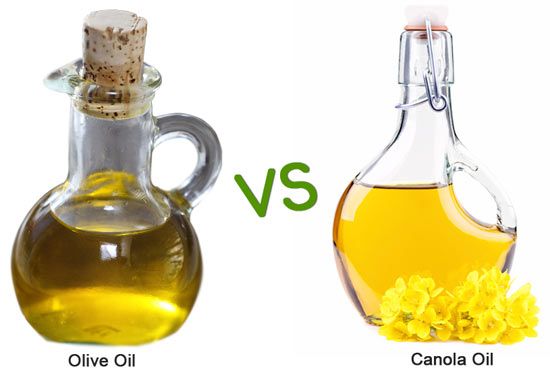 Many glycosides exist in nature and possess important biological functions. Anti-canola
sites claim canola oil glycosides depress the immune system or block
various enzyme functions, but this is FALSE! Glysosides are naturally
found in plant flavorings and colors and are a key part of normal human
metabolism.
Many glycosides exist in nature and possess important biological functions. Anti-canola
sites claim canola oil glycosides depress the immune system or block
various enzyme functions, but this is FALSE! Glysosides are naturally
found in plant flavorings and colors and are a key part of normal human
metabolism. - Isothiocyanates are naturally occurring compounds plentiful in many popular vegetables like kale, mustard greens, turnip greens, Brussels sprouts, cabbage, and cauliflower. The consumption of foods containing isothiocyanates is thought to have a role in preventing certain cancers and may also have cardiovascular benefits. Anti-canola sites claim that it's a form of cyanide. However, it has no relationship to cyanide and actually is a sulfur-containing compound with anti-cancer properties to help the body fight cancer.
Claim 4: Canola oil is not safe to give infants and young children
FALSE.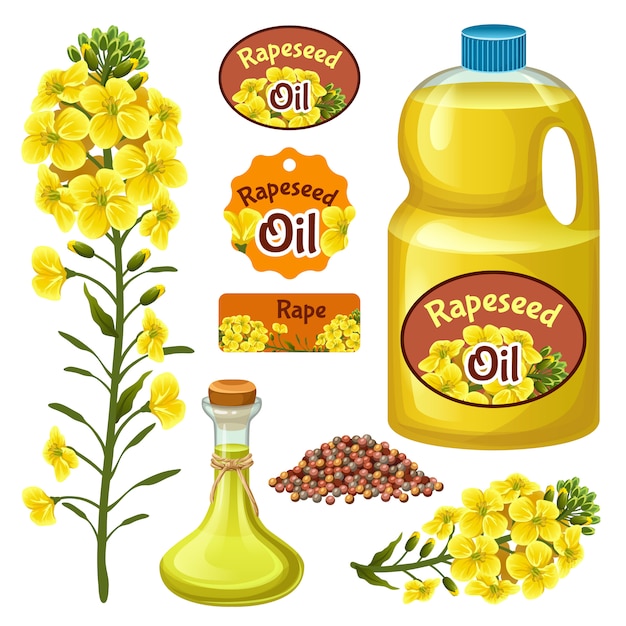 Here at Nature’s One, your children’s health and safety is the MOST IMPORTANT aspect of what we do. We’re proud to bring you nutrition products that you can trust to include high-quality, real-food ingredients.
Here at Nature’s One, your children’s health and safety is the MOST IMPORTANT aspect of what we do. We’re proud to bring you nutrition products that you can trust to include high-quality, real-food ingredients.
Canola oil has been proven safe for little bodies, or we would not be using it in our products. Canola oil is allowed by the US Food and Drug Administration (FDA) in infant and toddler formulas and in numerous foods for little ones; is used as a cooking oil; and has “generally recognized as safe”(GRAS) status (meaning the FDA designates that substance added to food is considered safe after a scientific review of the characteristics of the substance and the estimated dietary intake for the population that will consume the substance).
And, while we’re on this subject...
The Internet can be a great place to find information, but always remember to check the facts with sources you can trust! If you have additional questions about the use of canola oil in our products, do not hesitate to reach out to us. We’re always happy to answer questions from our families.
We’re always happy to answer questions from our families.
And, if you have other ingredient questions – about Nature’s One products, or another common product – send them our way! We love using science to find the best nutrition options.
Which is the Best Cooking oil for Babies?
Parents today are extra-conscious about what their children eat and they are NOT wrong in their concern. The easy availability of junk food and growing obesity among children is no doubt a cause for growing concern among parents. Finding out which is the best cooking oil for babies is also a concern for all parents.
It is difficult to make out the quantity of sugar, quality, and quantity of fats/oils and other micro-ingredients that are added to junk and packaged food. Even in those labeled as healthy foods, unknown quantities of fats and sugars can be present. Our media and health industry projects the “culprit of all illnesses” as fats.
Our supermarket shelves are stocked with low fat, cholesterol free, trans-fat free refined oils. But are these oils safe as they claim to be? Can these oils be consumed without any restriction as these are low fat?
But are these oils safe as they claim to be? Can these oils be consumed without any restriction as these are low fat?
Also read: 11 Amazing Benefits Of Olive Oil For Baby Food
What effects do these oils have on babies? What are the oils best-suited for babies’ consumption? There are innumerable number of questions on parents’ minds. Let us understand about why oils are necessary and also which is the best cooking oil for babies.
YES. Fat is good for your baby and is necessary as well. The key is to include good fats in limited quantities. Good fat is very much essential for growing babies as they help in cell repair, brain development, and bone & organ growth. Fats are also needed for the body to absorb Vitamins A, D, E & K.
Oils and fats also act as a lubricant during digestive process and prevent constipation. In fact, breast milk is comprised mostly of fat which is very nourishing to the baby. However, excess use of oils and fats in your baby’s food can lead to obesity and other serious health conditions in the long term. The key is to monitor the quantity of oil you are serving to your baby.
However, excess use of oils and fats in your baby’s food can lead to obesity and other serious health conditions in the long term. The key is to monitor the quantity of oil you are serving to your baby.
Not Advisable.
Refined oils are oils that are subject to chemical processing at very high temperatures, which causes them to lose most of the nutrients along with the flavor. As the oil is subjected to extreme heat, there are high chances of toxic substances getting created in the oil and also, the essential amino acids are destroyed. Since there is no nutritive value in the refined oil, consuming such oils has no health benefits for the babies.
Also read: Benefits Of Massaging Your Baby With Coconut Oil In Winters
What Oils and Fats are Suitable for Babies?You can use any oils that were traditionally used in our cuisine such as groundnut oil, mustard oil, coconut oil or sesame oil.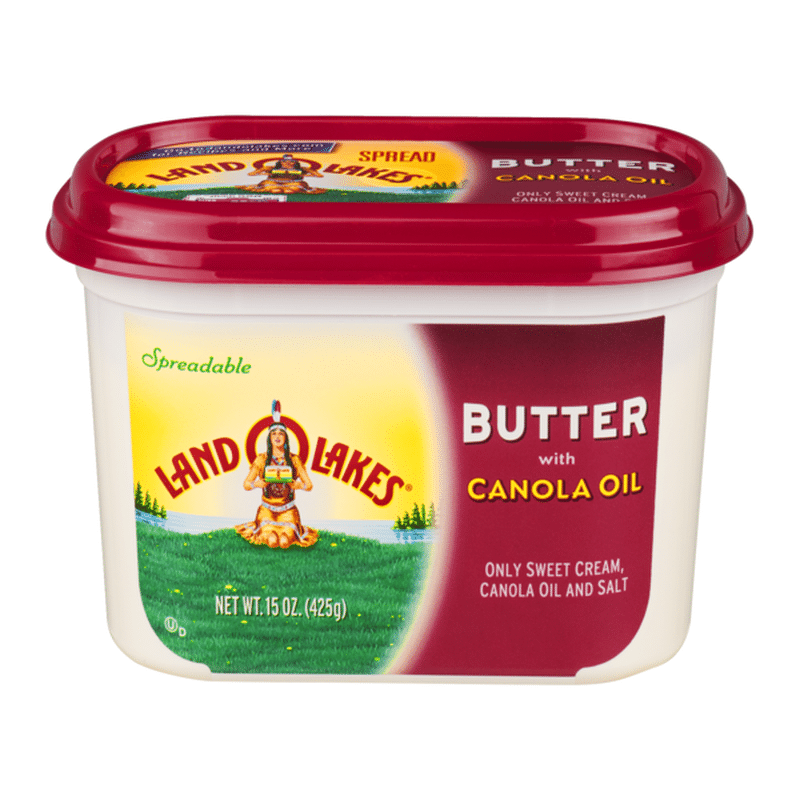 Alternatively, you can also use sunflower oil or olive oil for the new-age recipes.
Alternatively, you can also use sunflower oil or olive oil for the new-age recipes.
Always use cold-pressed and filtered oils rather than refined oils. Cold-pressed are obtained by pressing the oil seeds at very low temperatures and is then filtered to remove any leftover particles. Filtered oils retain their original flavors and retain most of their nutrients. Since these oils tend to turn rancid soon, the manufacturer usually uses fresh and good quality raw materials for better taste and long storage.
Also, ghee is an excellent option to use for preparing your baby’s food. Ghee has antifungal and antiviral properties and promotes lubrication of joints. It aids digestion and also increases skin tone. Butter is also suitable as a breakfast spread for items like dosa, idli, paratha etc. Before introducing an oil for your baby, ensure that your baby is not allergic to the contents of the oil.
Benefits of using Tradition Oils
While preparing food for your baby, you can always follow the age-old method to decide the best oil for the recipe. Groundnut oil suits best for upma, the east Indian recipes may never taste the same without mustard oil and South Indian rasam may not taste good without tempering with ghee.
Groundnut oil suits best for upma, the east Indian recipes may never taste the same without mustard oil and South Indian rasam may not taste good without tempering with ghee.
However, you should avoid mixing oils as different oils can have different heating temperatures which can affect the flavor of the food and may potentially cause loss of nutrients in the oil with low smoking point.
Let us understand the benefits of some of the traditional oils.
Groundnut Oil:- Has high smoking point.
- Rich in MUFA (Monounsaturated Fatty Acids).
- May not be suitable for those allergic to groundnuts.
- Has a long shelf life.
- Gives a unique taste to dishes.
- Has antifungal and antiviral properties.
- Contains high quantity of lauric acid which is very good for skin and digestion.
- Not suitable for frying.
- Can be used for salad dressing and for stir-frying.

- Has a pungent taste.
- Rich in MUFA and PUFA (Polyunsaturated Fatty Acids).
- Can be used for frying and for tempering various dishes.
- Has a nutty flavor.
- Rich in Vitamin K.
- Usually not used for frying.
- Very suitable for tempering.
- Has a high smoking point.
- Rich in fat-soluble vitamins.
- It is hypo-allergenic as the lactose contents are removed.
- Very good for digestion as it is loaded with short-chain fatty acids called as Butyric acid.
Also read: Benefits of Almond Oil For Babies
Which oils/fats are to be avoided?Oils and fats such as canola oil, vanaspati or margarine, which are made either from genetically modified raw materials or through extensive refinement can be avoided altogether. Such oils/fats have no nutritional benefits and are high in trans fats, which can be linked to obesity and other illnesses.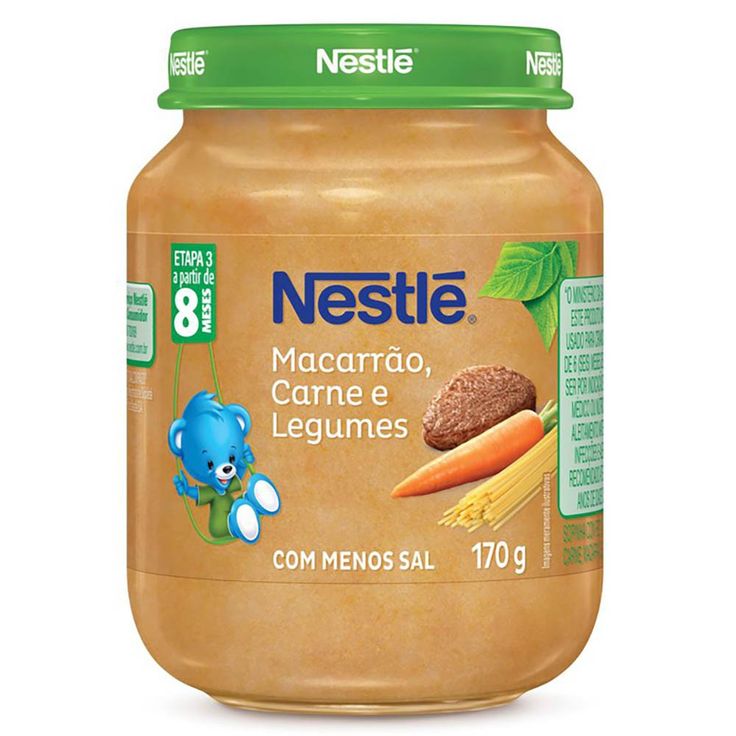
Oils and Fats are essential for our well-being just like vitamins, proteins, carbohydrates etc. It should be a compulsory ingredient in your baby’s diet but in the right quantity.
Always choose organic, cold-pressed and filtered oils rather than refined oils to derive maximum health benefits. You can also choose to add ghee to your baby’s food or use butter as a breakfast spread. Though there are many oils which are suitable for babies, use your discretion to choose the best one for your baby.
You can use different oils for different dishes as the recipe demands. However, avoid mixing different types of oils.
Also read: Benefits Of Mustard Oil For Babies
Want to share your mommy experience with other moms through words or images? Become a part of the Moms United community. Click here and we will get in touch with you
null
null
Is canola/rapeseed oil harmful?
Is canola/rapeseed oil harmful? - PRO AUTISM Reading time: 10 min.This article is based on research, that is, it has scientific evidence. Numbers in brackets (1, 2, 3) are active links to publications of peer-reviewed studies.
Is canola/rapeseed oil harmful? nine0002 Read: 4 760Why is canola oil bad? A genetically modified product, canola oil is a Canadian invention that is backed by the Canadian government, is cheap to produce, and many packaged and processed foods contain it.
Canola oil was first created in the early 1970s as a natural oil, but in 1995 Monsanto created a genetically engineered version of canola oil.
As of 2005, 87% of canola grown in the US was genetically modified, and by 2009, 90% of the Canadian crop was genetically modified.
There are so many oils on the market and so much talk about different types of oils that it's hard to tell what is fact and fiction.
I want to explain all the reasons why canola oil is not the right thing to buy, from genetic modification to an overload of unhealthy fats.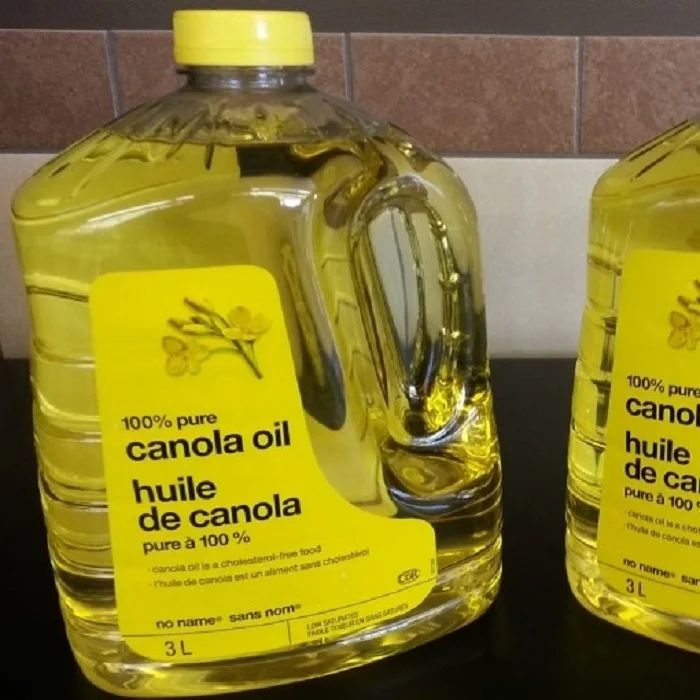 nine0006
nine0006
What is canola oil?
Rapeseed oil is obtained from the rapeseed plant, in particular from the seeds of rapeseed or from the plant itself, which is a member of the mustard family ( Brassicaceae ). What is canola then?
In the early 1970s, canola was first bred from rapeseed at the University of Manitoba in Canada by Keith Downey and Baldur R. Stefansson.
In 1998, “the most disease and drought tolerant canola variety today” was developed using the genetic modification and this is how most of the latest strains are produced.
Is rapeseed oil a vegetable oil? Yes, it is a type of vegetable oil, which is why it is also sometimes referred to by that term. Therefore, when you see “vegetable oil” on the package, you already know that this is canola oil.
Wild rapeseed oil is high in erucic acid, which is known to cause health problems, so the canola plant was developed from rapeseed to be used to produce edible canola oil with lower levels of erucic acid.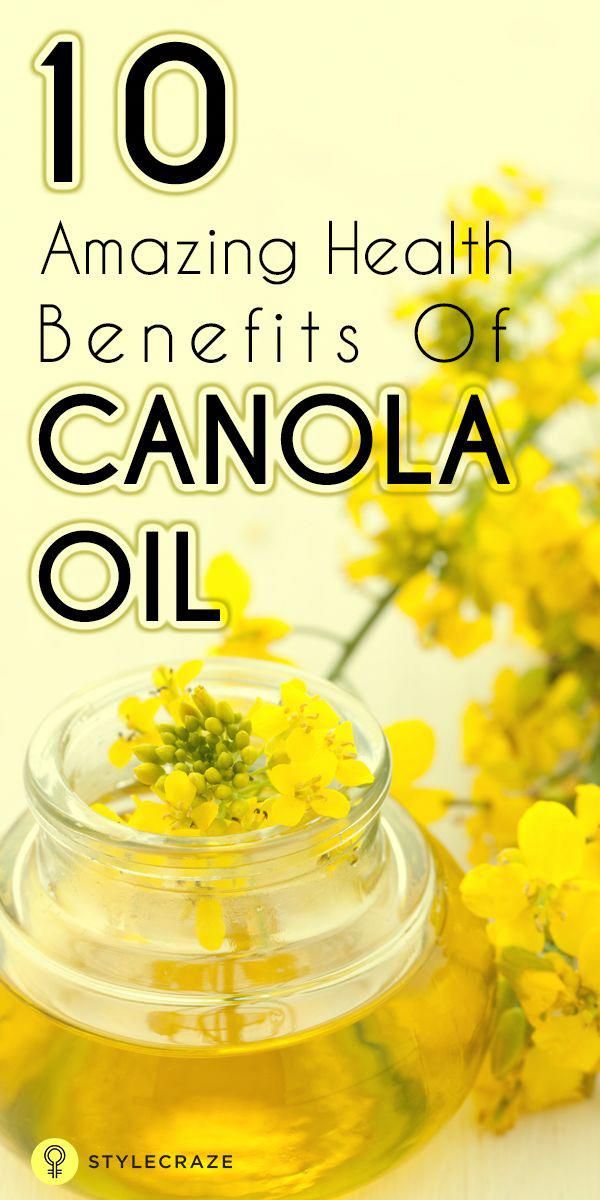 nine0006
nine0006
Canola oil was originally named LEAR (low erucic acid rapeseed), but has been changed to canola oil for marketing purposes. This word comes from Can adian O il, L ow A cid "low acid Canadian oil"
Canola oil is a much more attractive name than LEAR or rapeseed oil use it in your diet?
The price of canola oil is relatively low, so it's no surprise that there are many uses for canola oil. The oil works well as an industrial oil and is used in candles, soaps, lipsticks, lubricants, inks, biofuels, and even insecticides. nine0006
As soon as it was discovered how to genetically modify rapeseed oil, it began to be sold as a food product.
It was introduced to the market with the claim that it was a wonderful oil, low in saturated fat and a source of omega-3 fatty acids. But in its current hybridized and modified state, it can cause a lot of health problems, which I will discuss next.
History of Canola Oil
Canola oil was developed when the food industry began looking for healthy and cost-effective alternatives to saturated fats in oils. These saturated fats have come under scrutiny as a result of reports from the American Heart Association and other US government agencies about saturated fats, which are often found in commonly used cooking oils, and are bad for the heart. nine0006
Many of these messages were specifically directed towards the transition to corn and soybean oil.
When food manufacturers were looking and experimenting, they discovered rapeseed oil. Rapeseed oil is a monounsaturated oil.
The problem with this original type of rapeseed oil is that it is very high in erucic acid. Erucic acid is a fatty acid found in rapeseed and mustard oils that has been linked to heart damage, specifically Keshan disease, a disease characterized by fibrotic lesions of the heart. nine0006
Food manufacturers continued their journey of refining rapeseed oil until, in the late 1970s, they developed a formula for genetically manipulating the rapeseed plant by splitting the seeds.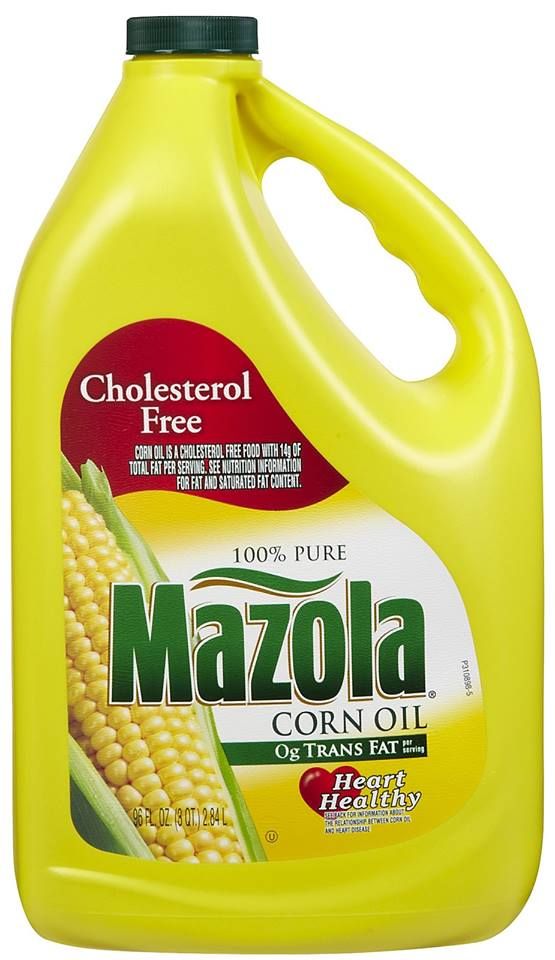 It is from this oil (obtained from seeds) that canola oil is obtained with less erucic acid and more oleic acid.
It is from this oil (obtained from seeds) that canola oil is obtained with less erucic acid and more oleic acid.
This was the oil that was called LEAR at the time.
How is it done?
To use the trade name "canola", the ingredients of canola oil must include only one canola oil, and the oil must not contain more than 30 micromoles of glucosinolates and more than 2% erucic acid. nine0006
What is canola oil made from? It is made from oil obtained by crushing rapeseed. It is one of several vegetable oils that go through a process of purification, bleaching and deodorization.
How is canola oil produced? A solvent called "Hexane" is used to chemically extract oil from seeds.
Does canola oil go bad? An unopened bottle has a shelf life of about two years before it goes bad. Most sources say that an open bottle of oil will go rancid in a year or less. nine0006
Nutrition information
Is canola oil healthy? As with any food, the key to understanding the health benefits of canola is to consider the entire nutritional profile, not just one or two components.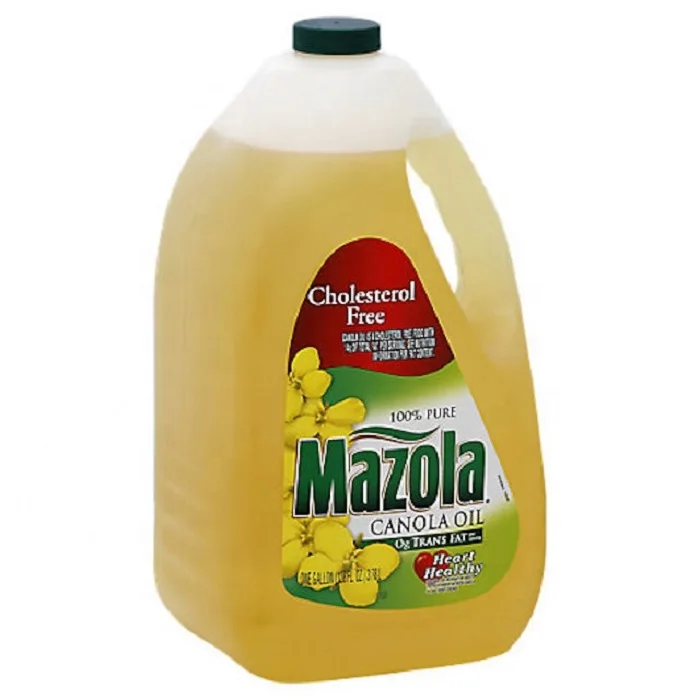
One cup of canola oil contains about:
- 1,927 calories
- 218 grams of fat
- 16.1 grams of saturated fat
- 0.9 grams of trans fat, but other reports say much more
- 110 155 micrograms vitamin K (194% DV)
- 38.1 mg vitamin E (190% DV)
As you can see, rapeseed oil is not low in calories.
A study published in Journal of the American Dietetic Association reports that most of the canola oil used in processed foods has been cured by a hydrogenation process that adds levels of trans fatty acids to the final product by up to 40%.
Looking more closely at the nutrition facts of rapeseed oil, its full fatty acid profile looks something like this:
- Saturated fat: 16.1 grams
- Monounsaturated fat: 138 grams -3 fatty acids: 5.018 or 19.921 milligrams depending on source
- Omega-6 fatty acids: 40,646 mg
Is canola oil harmful?
One of the things I noticed while doing research is that most canola oils had a poor omega-3/6 ratio of 8:1, where the first number is omega-6 and the second is omega-3) and a large the amount of trans fats.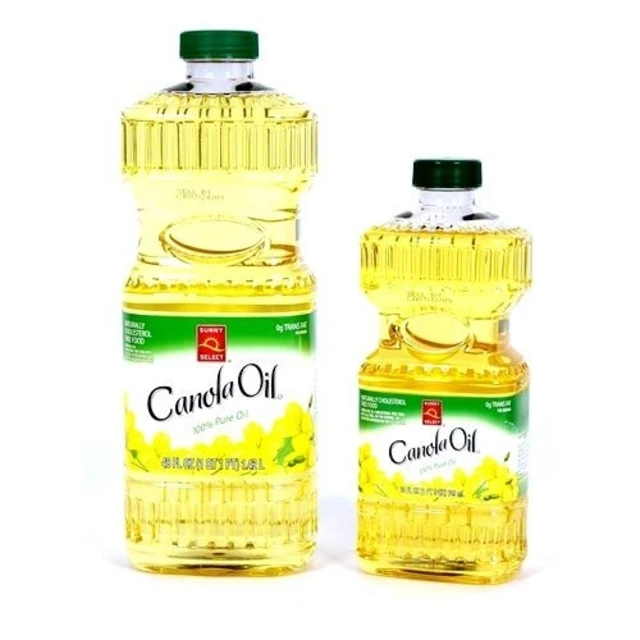 nine0006
nine0006
Many people tend to get too much omega-6 in their diet and not enough omega-3. The high consumption of vegetable oils such as canola may be one reason for this.
Why is rapeseed oil harmful?
Initially, rapeseed oil may not have had such negative health effects.
Why is canola oil so bad for you? For three main reasons, most canola oil today can be very harmful to your body:
- More than 90% of canola oil is genetically modified.
- Rapeseed oil is a refined oil that has been partially hydrogenated to improve its stability, but this increases its negative health effects.
- Associated with increased inflammation in animal studies, and chronic inflammation is believed to be the cause of most diseases (1, 2, 3).
No long-term, viable studies have been conducted on GMO rapeseed oil, but there are reports that it has caused many kidney, liver and neurological health problems.
nine0006
This makes sense as there are other reports that GM foods such as corn and soy can also have negative health effects. So if you're comparing soy or corn oil to canola, I would suggest avoiding them all!
It is for these reasons that I recommend you switch to the healthier oil alternatives that I list below.
Is vegetable oil bad for you? According to Weston A. Price and experts Sally Fallon and Mary Enig:
“Like all modern vegetable oils, rapeseed oil goes through a process of refining, bleaching and degumming, all involving high temperatures and chemicals of questionable safety. And since canola oil is high in omega-3 fatty acids, which easily turn rancid and smell bad when exposed to oxygen and high temperatures, it needs to be deodorized. A standard deodorization process removes most of the omega-3 fatty acids, converting them to trans fatty acids. nine0023 Although the Canadian government lists canola as a minimum of 0.2% trans, research conducted at the University of Florida at Gainesville found trans levels as high as 4.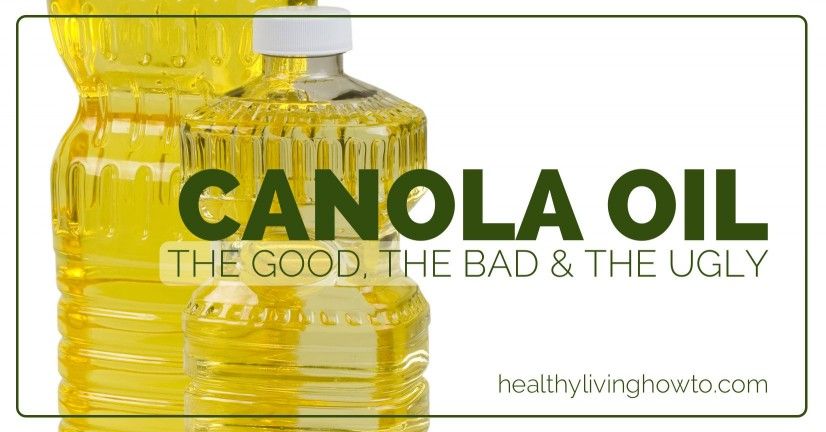 6% in commercial liquid oil. The consumer has no idea about the presence of trans fatty acids in canola oil because they are not listed on the label. «
6% in commercial liquid oil. The consumer has no idea about the presence of trans fatty acids in canola oil because they are not listed on the label. «
Monsanto includes genetically modified organisms in canola oilseeds, and we now know that Monsanto also sells GMO seeds for the following plants:
Sounds great, but the problem is that the Secretary of Agriculture decides how many GMO ingredients must be present in a food in order for the GMO labeling law to be implemented.
Top 6 dangers
1. Kidney and liver problems
Much of the canola oil produced today is genetically modified. The side effects of GMOs in general cannot be overestimated.
In a 2011 review published in a magazine Environment Sciences Europe , 19 studies of mammals fed GMO soybeans and corn were evaluated. A 90-day trial showed liver and kidney problems as a result of GMO foods.
Kidney and liver injury factors differed by sex, with the kidneys being destroyed by 43.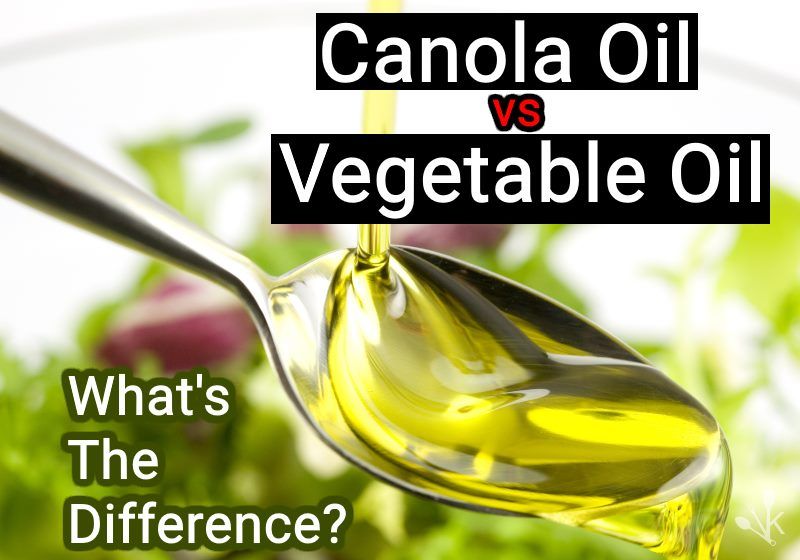 5% in male mammals and the liver by 30.8% in female mammals.
5% in male mammals and the liver by 30.8% in female mammals.
The kidneys and liver are vital to our existence, so eating genetically modified foods such as canola oil is harmful. nine0006
2. Heart disease
As a monounsaturated oil, rapeseed oil has a high level of erucic acid. Erucic acid is a fatty acid that has been linked to heart damage, especially Keshan disease, a disease that presents with fibrotic lesions of the heart.
Studies have shown that in areas where people are prone to keshan, not only the level of selenium is lower, but also the level of erucic acid is higher ( 4 ) .
Partially hydrogenated vegetable oils such as canola are also known to cause inflammation and calcification of the arteries, which are well-recognized risk factors for coronary heart disease (5). nine0006
3. Hypertension and Stroke
Previous studies have shown that the consumption of rapeseed oil and some other types of vegetable oils reduces the lifespan of animals susceptible to stroke and hypertension.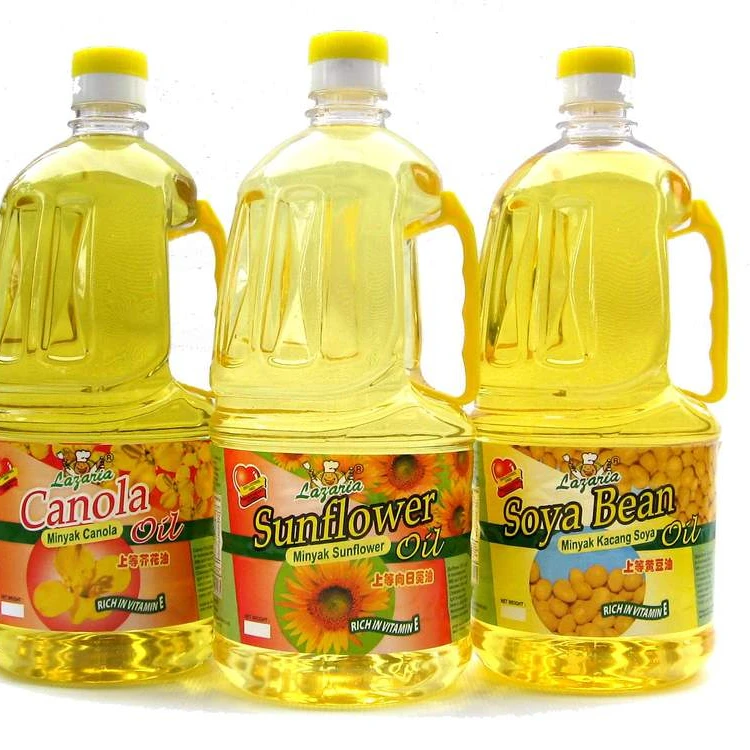 Specifically, studies conducted at the Department of Nutrition and Toxicology Research in Ottawa found that rats that had high blood pressure and were prone to stroke died earlier when fed canola oil as their sole source of fat. nine0006
Specifically, studies conducted at the Department of Nutrition and Toxicology Research in Ottawa found that rats that had high blood pressure and were prone to stroke died earlier when fed canola oil as their sole source of fat. nine0006
In addition, rats fed non-canola oil diets lived longer than rats fed rapeseed oil.
Another study published in 2000 in Toxicology Letters, specifically looked at the effect of canola oil on how long it takes blood to clot in stroke-prone animals. The study found that there was "canola oil-induced shortening of blood clotting time and increased fragility of red blood cell membranes," which may contribute to strokes in stroke-prone animals. nine0006
4. May slow down the normal growth and development of the baby
Until recently, canola oil was not allowed to be used in infant formula. I think there are good reasons to be afraid of stunted growth in children.
In particular, the acidic acid in rapeseed oil is harmful to babies due to the inability to break it down properly. The FDA has previously made the use of canola oil illegal in infant formula. But a few years ago, canola oil was on the generally accepted safe list. nine0023 Now sold in the form of baby's first food. Of course, I highly recommend ditching commercial formulas and opting for breastfeeding if possible.
The FDA has previously made the use of canola oil illegal in infant formula. But a few years ago, canola oil was on the generally accepted safe list. nine0023 Now sold in the form of baby's first food. Of course, I highly recommend ditching commercial formulas and opting for breastfeeding if possible.
5. Increases consumption of unhealthy trans fats
According to a study published in Food Lipids , when soybean oil and canola oil purchased in the US were evaluated, "trans content ranged from 0.56 to 4.2% of total fatty acids.
When canola oil is hydrogenated, which often turns into partially hydrogenated oil, it increases the level of trans fats. This is a group of fats that you want to avoid as much as possible because they are scientifically known to increase LDL cholesterol and lower HDL cholesterol. nine0006
Research has also linked trans fats to weight gain. In an animal study, trans fats lead to weight gain even when compared to the same calorie intake.
Linking this to the obesity epidemic that we are facing, it may be a sign to reconsider the use of these oils to help restore healthy weight and metabolic function, although this is only part of a growing problem.
When you read "partially hydrogenated oil" on any food label, it guarantees some trans fat. This is true even when the label states that there are no trans fats. nine0006
How can this be? Well, if a serving contains less than 0.5 grams, the company is allowed to state no trans fats.
Trans-fatty acids are dangerous by-products of the food industry and are truly detrimental to health. In fact, if you decide to get rid of canola oil, I would also stop cooking with the following oils: corn oil, safflower oil, and soybean oil.
6. Numerous harmful health effects of GMOs
I have already mentioned the link between GMOs and negative effects on the liver and kidneys, but the harm does not end there. According to the website of the Center for Food Safety, there are several new and very serious health problems and unexpected consequences of genetic engineering discovered by scientific research:
- Toxicity
- Allergic reactions
- Immuno-suppression
- Cancer
- Nutritional deficiencies
What can I substitute for canola oil?
There are much healthier choices than "vegetable" oils that just sound great.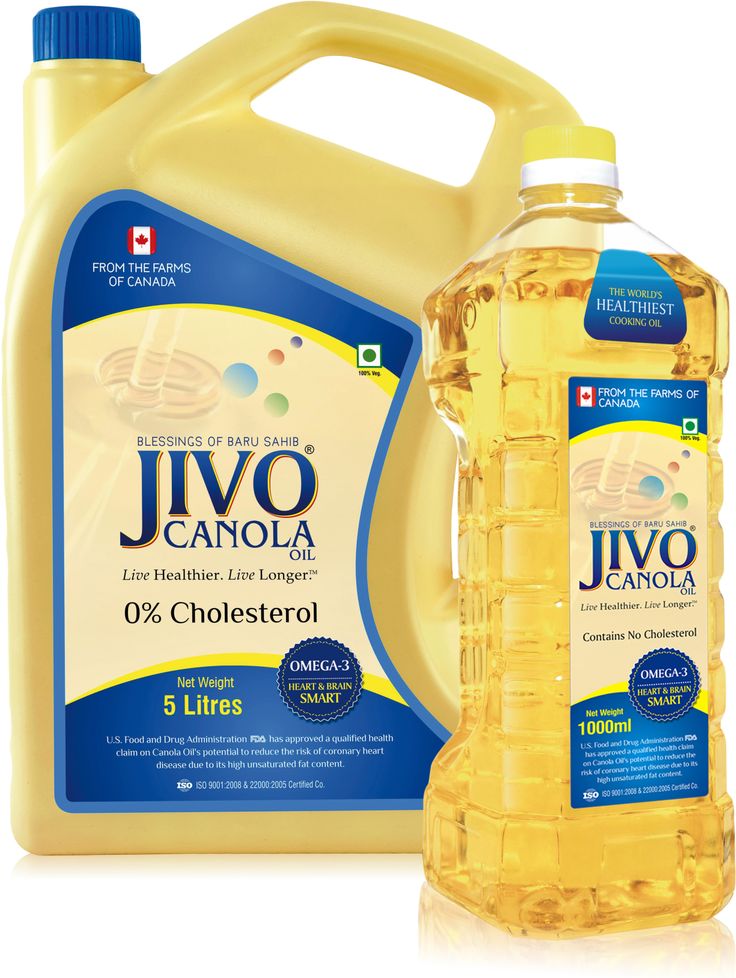 Most vegetable oils (rapeseed, corn, peanut, safflower, etc.) are derived from GMO crops and/or are highly refined.
Most vegetable oils (rapeseed, corn, peanut, safflower, etc.) are derived from GMO crops and/or are highly refined.
So what are the best oils for cooking? Here are the top oils I personally use as a replacement for canola oil:
1. Coconut oil
Coconut oil is best purchased cold pressed and Extra Virgin. The designation Extra Virgin on the label indicates that the oil in front of you is the first pressing, that is, obtained directly by mechanical pressing. Your coconut oil should smell like you're on a Caribbean beach.
It contains medium chain fatty acids that can support both fat loss and your nervous system. nine0006
Looking for the best frying oil? People often say that the best oil for frying is vegetable oil such as canola (canola has a smoke point of about 400 degrees Fahrenheit).
Canola is definitely not the healthiest frying oil. Instead of using canola oil for frying, I recommend coconut oil.
With a smoke point of around 350 degrees Fahrenheit, coconut oil is a good medium temperature frying oil. nine0006
nine0006
2. Olive oil
Is olive or canola oil better? People often compare canola oil to olive oil.
If there is a competition between olive oil and canola oil, olive oil wins by far!
Olive oil has been shown to be one of the best healthy oils. The benefits of olive oil are enormous and form the basis of the Mediterranean diet.
Buy organic extra virgin or extra virgin olive oil in a dark glass bottle. Many low quality olive oils are blended with cheaper GMO vegetable oils, so make sure they are non-GMO. nine0006
It is important to know that olive oil should not be cooked over high heat and its health benefits are best obtained when used raw. Olive oil is great for dressing salads.
3. Clarified butter or ghee
High quality ghee or ghee is an excellent substitute for canola oil. You can read about the many beneficial properties of ghee in a separate article "Ghee Butter"
It contains beneficial short chain fatty acids and has a higher thermal threshold.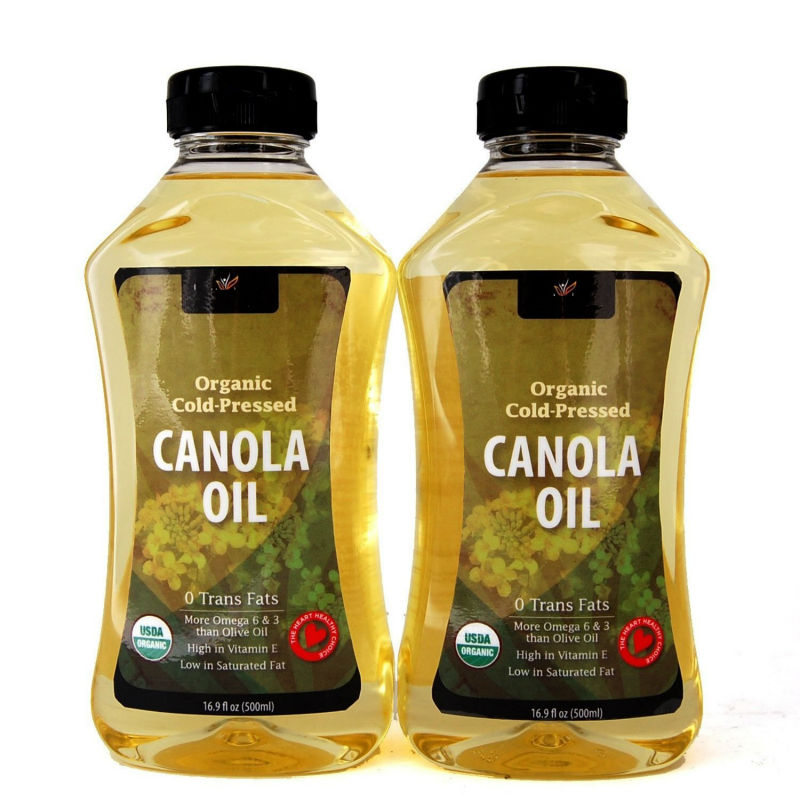 nine0006
nine0006
4. Avocado oil
Avocado oil is one of my favorite cooking oils because it has a high smoke point and a mild flavor that goes with any dish you can imagine.
Avocado oil, along with olive oil, is a good source of monounsaturated fats, healthy dietary fats.
5. Red palm oil
Red palm oil is made from the fruit of the palm tree, not the kernel, and in its unrefined state is rich in vitamin E and beta-carotene. It is also stable at high temperatures and is great for cooking. nine0006
When purchasing palm oil, make sure it is certified unrefined.
Final Thoughts
If for some reason you need to buy canola oil, make sure it's organic canola oil because then it can't be obtained from genetically modified plants. It is still illegal to use genetic engineering or modification in certified organic products.
Top 5 articles of the section
Be the first to read news in Telegram
Go
Butter in baby food or why are our children being poisoned?! - 63 answers
Cheekbones in Child nutrition from birth to a year 10 years
Choice of FOOD PRODUCTS
The summer season is over and the products from the garden are over.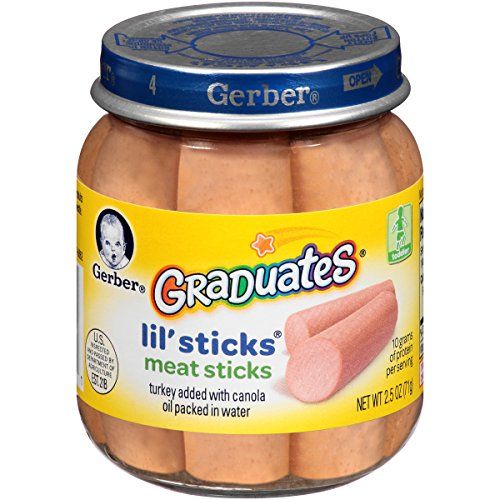 It's time for the canned puree. Maybe someone will shower me with slippers, but I'm not sure about the usefulness of the products that are sold in the store and I don't risk giving them to Fignyulka, and there really isn't enough time. Accordingly wellcom canned puree. But even here there are SOOO big doubts about their usefulness. Namely, the content of rapeseed and palm oils in the composition. Is it really more important to increase the shelf life of a product than the health of children?! Do you buy jars with oil in the composition? nine0006
It's time for the canned puree. Maybe someone will shower me with slippers, but I'm not sure about the usefulness of the products that are sold in the store and I don't risk giving them to Fignyulka, and there really isn't enough time. Accordingly wellcom canned puree. But even here there are SOOO big doubts about their usefulness. Namely, the content of rapeseed and palm oils in the composition. Is it really more important to increase the shelf life of a product than the health of children?! Do you buy jars with oil in the composition? nine0006
Palm oil belongs to the group of vegetable oils containing large amounts of so-called saturated fats. A distinctive feature of saturated fatty acids from plant sources is their high resistance to environmental influences. Products containing them are stored for a long time without acquiring a rancid taste. In this regard, palm oil is actively used in the production of margarine and mixed oils to improve the presentation and increase the shelf life of products. nine0369 Meanwhile, saturated fats, beneficial for commodity producers, are by no means beneficial to human health. Saturated fatty acids increase the level of cholesterol in the blood, contribute to the development of atherosclerosis. In excess of their use, the risk of developing heart disease increases ...
nine0369 Meanwhile, saturated fats, beneficial for commodity producers, are by no means beneficial to human health. Saturated fatty acids increase the level of cholesterol in the blood, contribute to the development of atherosclerosis. In excess of their use, the risk of developing heart disease increases ...
As for rapeseed oil, then ....
Since the late 90s, with the help of genetic engineering, the rapeseed variety has been “improved” many times, so most of the canola oil (rapeseed oil) ,
available on the market today is a genetically modified product that is unsafe for health. Experts and other competent professionals
in the field of nutrition recommend refraining from consuming canola oil.
It is obtained through a complex manufacturing process using high temperatures and chemical compounds.
At the same time, at the stage of its deodorization, omega-3 fatty acids are converted into trans-fatty acids that are toxic to the body.
Scientific evidence suggests that trans-fatty acids interfere with the metabolism of good fats, increase "bad" and lower "good" cholesterol levels,
raise blood sugar levels.